Credits
Research & Production Team
Bearing Witness is a research project by the Columbia University Center for Science and Society’s Research Cluster on Race, Inequality and Health. Dr. Samuel Kelton Roberts is the Cluster leader. Please send any questions, comments, or suggestions to raceandhealth@columbia.edu.
The timelines are generated using TimelineJS, developed by the Northwestern University Knight Lab, and the website is created in collaboration with Columbia University Digital Scholarship Librarian, Alex Gil.
Samuel Kelton Roberts, PhD.
Associate Professor of History, Sociomedical Sciences, and African-American Studies; Columbia University School of Arts and Sciences and the Mailman School of Public Health

Samuel Kelton Roberts, PhD, is Associate Professor of History, Sociomedical Sciences, and African-American and African Diaspora Studies, and is also a former Director of Columbia University’s Institute for Research in African American Studies (IRAAS). Dr. Roberts writes, teaches, and lectures widely on African-American urban history, especially medicine, public health, and science and technology. His widely acclaimed book, Infectious Fear: Politics, Disease, and the Health Effects of Segregation (University of North Carolina Press, 2009), is an exploration of the political economy of race and the modern American public health state between the late nineteenth century and the mid-twentieth century, a period which encompasses the overlapping and mutually-informed eras of Jim Crow segregation and modern American public health practice.
Roberts currently is researching and writing a book-length project on the United States’s troubled history of race and recovery, examining the social and political history of heroin addiction treatment from the 1950s to the early 1990s. This project traces urban policy at the beginning of the postwar heroin epidemic, the emergence of therapeutic communities, the politics of state-run addiction rehabilitation facilities, the racial politics of methadone maintenance treatment in the 1960s and 1970s, the emergence of “radical recovery” movements, and harm reduction and syringe exchange in the 1980s and 1990s.
In 2013-14, Dr. Roberts was the Policy Director of Columbia University’s newly inaugurated Justice Initiative (now the Columbia University Center for Justice) and was the editor of the Center’s first research publication Aging in Prison: Reducing Elder Incarceration and Promoting Public Safety (2015). At the Columbia University Center for Science and Society, he leads the Research Cluster for the Historical Study of Race, Inequality, and Health. He also is the co-editor of Columbia University Press’s book series in Race, Inequality, and Health. In 2018, Dr. Roberts launched the podcast series People Doing Interesting Stuff (PDIS) (available on iTunes and other podcasting platforms) in which he speaks with people working in public health and social justice, especially harm reduction, HIV/AIDS work, reproductive justice, and criminal justice reform. He is also the co-host of the podcast series, Black Lives: In the Era of COVID-19.
He tweets from @SamuelKRoberts (https://twitter.com/SamuelKRoberts).
Valentina Parisi, MS, MPH
Doctoral Student, Sociomedical Sciences Department; Columbia University Mailman School of Public Health
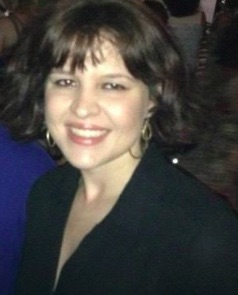
Prior to Columbia, Valentina studied anthropology and immunobiology at Brown University where she received her BA and MS degrees. While at Brown University, she worked in the Rhode Island Hospital Surgical Research Department for several years studying the immune response and the role of cell surface receptors in combating fungal pathogens. This research experience and her continued interest in anthropology led her to the field of public health. In May 2017, she graduated from the Mailman School of Public Health with her MPH degree in Sociomedical Sciences and a certificate in health and human rights. She became increasingly interested in historical methods and the intersection of health and the environment during her time at Mailman and following her MPH, she worked as a Program Officer in the Population and Family Health Department where she engaged in collaborative research projects concerning environmental and gender justice, forced migration and health, and plural legal systems. She rejoined the Sociomedical Sciences Department in fall 2018 as a doctoral student. Her doctoral research interests include the history of domestic environmental health and policy; shifting environmental risk perceptions and characterizations during the twentieth century; and health social movements related to the environmental threats, such as toxic exposures and climate change.
Adam Kluge
B.A. Candidate in History and Political Science; Columbia College
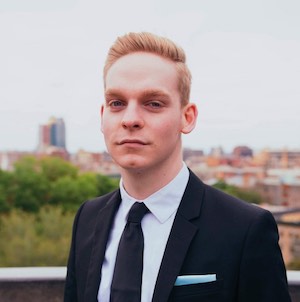
Adam is a junior in Columbia College, majoring in History and Political Science, with a focus on the intersectionality of the Prison Industrial Complex & queer and minority populations in America. Through extensive research in the areas of criminal justice reform, public policymaking, and the impacts of racial and sexual discrimination on those in carceral settings, Adam combines his background in the arts and social justice advocacy to foster dialogues surrounding socioeconomic inequities in our modern world. Beyond his work on Covid-19 and Inequality, Adam is a member of the Columbia Justice-in-Education Initiative on Rikers Island, the Eric J. Holder Initiative for Civil and Political Rights, and The Digital Abolitionist. He currently resides in Buffalo, NY.
Andrew Parker Thomas
CC ‘23
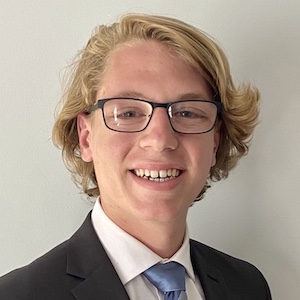
Andrew Thomas is a rising sophomore in Columbia College studying history. He has a passion for conversation and media and a deep desire to engage with public policy. Andrew is a board member at Camp Kesem Columbia and currently works with his local Boys and Girls Club, and enjoys frequently pitching to the Columbia Political Review and other publications.
Travis Vidic
Master’s Student, African American and African Diaspora Studies Department; Columbia University Graduate School of Arts and Sciences
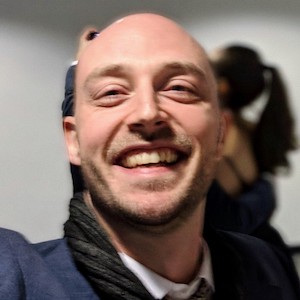
Travis completed his bachelor’s degree at Columbia University School of General Studies, majoring in sociology. His academic interests include Black thought; critical theory; the history and current state of capitalism within and without America; imperialism; empire; public health; and harm reduction. He is currently researching the legibility of riot in modern America, ontologically and as act. Originally from Juneau, Alaska, Travis now lives in Harlem. When not studying, he can be found hosting a radio show at Barnard College’s WBAR, working with Ali Forney, a center for homeless LGBTQIA+ youth, and assisting with Columbia’s annual music festival, Bacchanal.
Kamaria Excell
Master’s Student, Columbia School of Social Work
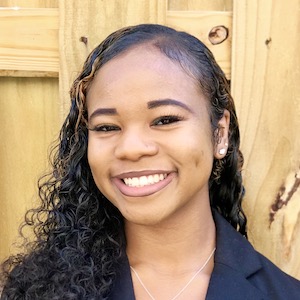
Kamaria Excell is a recent Comparative Women’s Studies graduate of Spelman College and a current student at the Columbia School of Social Work. Her most recent role as Spelman College's Title IX Assistant, Planned Parenthood Public Affairs Intern, CDC Trained Peer Health Educator, and Executive Director of the 501(c)(3) nonprofit Berry Academy Inc., have all equipped her with the skills to adequately create curriculum and facilitate programming related to social justice, anti-oppressive social work, and self-awareness regarding themes of power, privilege, race, and oppression. Having been trained in Black Feminist Theory and Praxis, she is sincerely invested in making a lasting impact through the mobilization of decolonial practices in fighting structural and systemic barriers to equity for marginalized folks. As a radical Birth worker, her work is situated at the intersections of race, class, gender, sexuality, and culture while utilizing a social, restorative, healing, and environmental justice framework.
Alex Gil, PhD.
Digital Scholarship Librarian; Columbia University Libraries
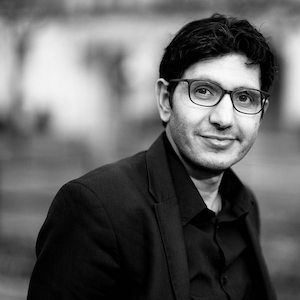
Alex Gil is the Digital Scholarship Librarian at Columbia University Libraries. He collaborates with faculty, students and library professionals leveraging computational and network technologies in humanities research, pedagogy and knowledge production. He is among the founders of several ongoing, warmly received initiatives where he currently plays leadership roles: Co-director of the Studio@Butler at Columbia University, a tech-light library innovation space focused on digital scholarship and pedagogy; co-founder and moderator of Columbia’s Group for Experimental Methods in the Humanities, a vibrant trans-disciplinary research cluster focused on experimental humanities; senior editor of sx archipelagos, a journal of Caribbean Digital Studies, and co-wrangler of The Caribbean Digital conference series.
We are thankful also for Sacha Telfer from the Columbia University School of General Studies for early contributions.
